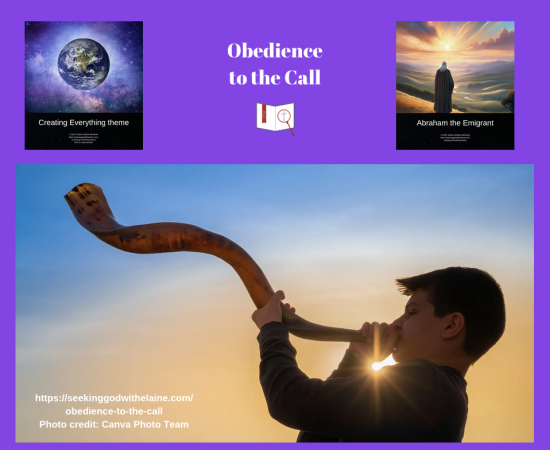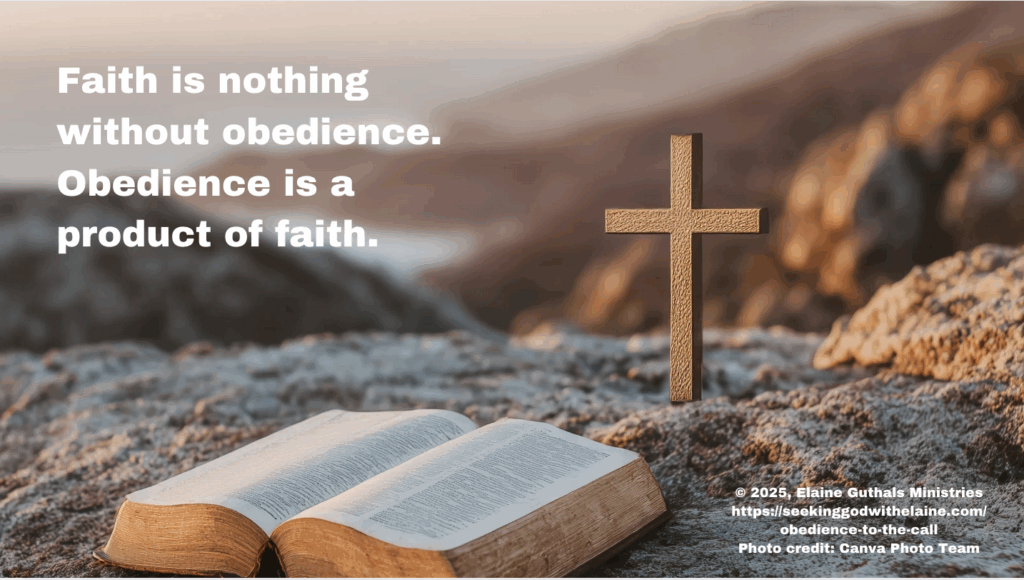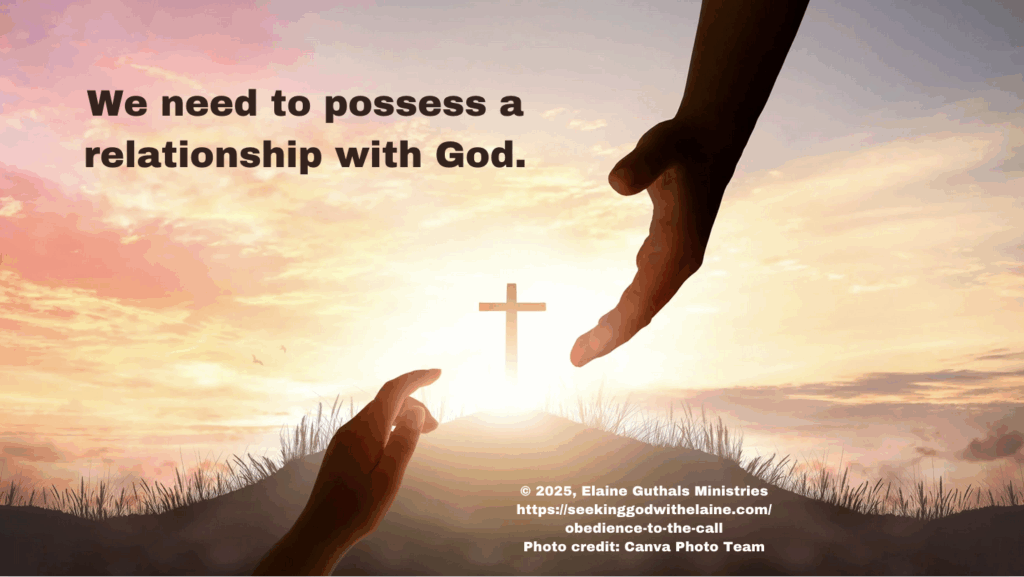Abram received the call from God to go to a land which He would show him. This devotional reading looks at what he did with that call.
Nuggets
- Abram immediately set out as God instructed him for a new home.
- Abram arrived at Haran without stopping.
- Though the Canaanites were family, they were the enemies of God.

Abram and his family traveled from Ur to Haren, where they stopped for five years. Then Abram got the call from God.
So, what did Abram do with it?
Let's Put It into Context
To read devotions in the Creating Everything theme, click the button below.
Devotions in the Abraham the Emigrant series
Departure
“So Abram departed as the Lord had instructed, and Lot went with him. Abram was seventy-five years old when he left Haran. He took his wife, Sarai, his nephew Lot, and all his wealth — his livestock and all the people he had taken into his household at Haran — and headed for the land of Canaan ...” (Gen. 12: 4-5 NLT)
Abram immediately set out as God instructed him for a new home.
We hear about Abram’s faith time after time. Faith is nothing without obedience.
Wait! What????
Meyer called Abram’s obedience only partial. I have to process this.
Resource
- “It was by faith that Abraham obeyed when God called him to leave home and go to another land that God would give him as his inheritance. He went without knowing where he was going” (Heb. 11: 8 NLT emphasis added).
- “One day Terah took his son Abram, his daughter-in-law Sarai (his son Abram’s wife), and his grandson Lot (his son Haran’s child) and moved away from Ur of the Chaldeans. He was headed for the land of Canaan, but they stopped at Haran and settled there” (Gen. 11: 31 NLT emphasis added).
- “So Abram departed as the LORD had instructed, and Lot went with him. Abram was seventy-five years old when he left Haran” (Gen. 12: 4 NLT emphasis added).
We talked before about whether Terah was called or Abram was called to leave Ur. Another question was if Genesis 11: 31 was Moses’ after-the-fact insertion of knowledge rather than Terah or Abram’s knowledge at the time.
God wants total obedience. But, whoever got the call in Ur, Terah and Noah stopped at Haran for five years.
Were they obedient in stopping?
Maybe. Maybe not.
If we put all of this together, this is about the only way I see it working.
- Terah was not called.
- Terah may have been prompted to go to Canaan, but he probably didn’t know it. Moses probably put that in after—the-fact.
- Terah stopping may have been the plan.
- Abram was called when he was in Haren.
- Abram immediately left when he was called and didn’t stop until he got to Canaan.
Let’s go at this another way. God tests us to grow us. He knows Satan is going to tempt us to get us to fail the test. He knows we have to make choices — and that may be a struggle.
Yes, the ultimate is we make the right choice immediately. But He knows that we grow more by our mistakes.
So, is God more concerned about our journey where we learn to rely on and choose Him? Or does God want total immediate submission?
Can it be both?
Well, God is not a dictator. Does He want submission to His laws? Of course. But He gives us the free will to make obedience a choice.
I am sure God would prefer us to make the choice sooner rather than later. He will forgive us when we make the wrong choice then repent and ask for forgiveness.
What do I think? I think we each have our own Sanctification Road. Our roads are made up of the bricks made by our trials and testing.
The time to my submission in obedience may be different to yours. I may take more off ramps than you do, but God needs those to get me to where He wants me to be.
We can’t compromise with the worldview. We can’t place someone or something— like our father — over God.
I said faith is nothing without obedience. Obedience is a product of faith.

Does this mean we have to separate from our family? We’ve said that God is in the business of separating and dividing. So, maybe.
But doesn’t that go against the first blessing we read in God’s Word? “Then God blessed them and said, ‘Be fruitful and multiply …’” (Gen. 1: 28 NLT).
Maclaren argued that because Abram went “… from [his] country and [his] kindred and [his] father’s house …” (Gen. 12: 1 NLT), God was able to use him. Remember, Abram’s wife Sarai and nephew Lot went with him.
Resource
We know of Abram’s obedience because of the outward things he did. He left. He built an altar. He made the public profession of faith.
But did Abram really follow God’s Word? “This explains why a man leaves his father and mother and is joined to his wife, and the two are united into one” (Gen. 2: 24 NLT).
Did Abram lose five years of obedience because of Terah? Leale believed that showed Abram’s consideration of others.
Resource
Nice sentiment — until we put others before our call. That means we aren’t obeying God.
Let’s take that a step farther. “I say this as a concession, not as a command. But I wish everyone were single, just as I am. Yet each person has a special gift from God, of one kind or another. So I say to those who aren’t married and to widows — it’s better to stay unmarried, just as I am” (I Cor. 7: 6-8 NLT).
I get what Paul was trying to get at. We shouldn’t divide our focus. God must always be first with us.
But I know God called me to be a pastor’s wife. I know Pastor Steve and I are a team because God called us to be together.
Pearse made two excellent points. The first was that Abram’s call by God wasn’t harsh. It was a merciful call.
Resource
The second point made by Pearse was that some of the troubles Abram had did stem from Sarai and Lot. We’ll dive into those in later devotions.
Arrival
“... When they arrived in Canaan, Abram traveled through the land as far as Shechem. There he set up camp beside the oak of Moreh. At that time, the area was inhabited by Canaanites” (Gen. 12: 5-6 NLT)
Arrived
I think I read somewhere the distance our small party had to travel. It was a couple of hundred miles — first from Ur to Haran, then another couple of hundred miles from Haran to Canaan.
There wouldn’t have been a Motel 6 on the way. No one, opposite to the tag line in the commercial, left the light on for them.
They slept in tents. That means Abram went from being a ruler in Ur with the living arrangements for someone in that status to a nomad in a tent.
Look what Pearse said about that. He wrote, “It was the outward and visible sign of the inward and invisible grace.”
Resource
It was the outward sign of Abram’s relationship with God. God commanded. Abram obeyed.
We aren’t told if they had any difficulties on the way. All we know is they arrived.
We would think that they were having a mountain-top experience, wouldn’t we? Abram was being obedient. Nothing should go wrong, right?
Well, weather, robbers, camel step on something wrong and hurt a leg. And the big thing — “… At that time, the area was inhabited by Canaanites” (Gen. 12: 6 NLT). They probably wouldn’t look kindly on what they would see as a squatter.
What can we learn about the journey? It took time. We don’t know how long the trip was; but going by camel with family, furniture, possessions, and people, it probably took more than a month. That was a long time for God to teach Abram about Who He is.
This is a great example of sanctification. Pastor Steve found a great definition of sanctification in Finney’s book. Finney wrote, “Sanctification, as a process, means obeying him more and more perfectly.”
Resource
Sanctification is the process of learning to be obedient.

Inhabited by Canaanites
Though the Canaanites were family, they were the enemies of God.
As much as the Canaanites warred with the Israelites, it is hard to remember that they were distant cousins. Abram was a descendant of Shem’s. The Canaanites were descendants of Ham.
Yeah, both of them were sons of Noah. Their kids looked at themselves as anything but distant cousins.
We have to assume that the Canaanites didn’t know Abram from Adam. He was a stranger, not family.
- “Also I give to you and your descendants after you the land in which you are a stranger, all the land of Canaan, as an everlasting possession; and I will be their God” (Gen. 17: 8 NKJV).
- “Here I am, a stranger and a foreigner among you. Please sell me a piece of land so I can give my wife a proper burial” (Gen. 23: 4 NLT).
- “By faith he made his home in the promised land like a stranger in a foreign country; he lived in tents, as did Isaac and Jacob, who were heirs with him of the same promise” (Heb. 11: 9 NIV).
Let’s talk a little about where in Canaan Abram first settled after crossing the Jordan River. Kalisch gave us an idea of what Shechem was like.
- It was located in the exact middle of Palestine.
- The oak of Moreh was a gathering place for all the tribes of the country.
Kalisch went on to tell us more significantly about its location. He wrote,
“Shechem, perhaps one of the oldest towns of Palestine, and in early times inhabited by the Hivites, is situated in a narrow but beautiful valley, between 1,200 to 1,600 feet wide, seven miles south of Samaria, not far from the confines of the ancient provinces of Ephraim and Manasseh, and in the range of the mountains of Ephraim, at the foot both of Mount Ebal and Gerizim, which enclose it north and south, which were themselves famous by early altars and sanctuaries, and were of the highest religious interest by the blessing and the curse proclaimed on them for the observance or the neglect of the Law. The town was not only important in the history of the patriarchs, but in the theocratical and political history of the Israelites; it was a city of refuge and a Levitical town.”.
Resource
I wonder if Abram knew he was going to the innermost town of the territory which would be given to his descendants. I can see God telling him, and I can see God letting it all play out.
We do know that God did give him a clue fairly quickly. “After Lot had gone, the LORD said to Abram, ‘Look as far as you can see in every direction — north and south, east and west. I am giving all this land, as far as you can see, to you and your descendants as a permanent possession. And I will give you so many descendants that, like the dust of the earth, they cannot be counted! Go and walk through the land in every direction, for I am giving it to you” (Gen. 13: 14-17 NLT)
Wilkins gave us a snapshot of what Abram would have seen.
- The inhabitants of Canaan lived in cities instead of being nomadic.
- Still, they lived in a primitive society.
- At times, they labeled the patriarch as king, but it was only a title.
- As yet, the society was not totally corrupted countries that would fight the Israelites after the Exodus.
Resource
This is also the land of the wicked in which God dropped Abram to be a missionary.
Hadn’t thought of it that way before, had we? But Abram would have been a witness for God.
Ham’s descendant: “Why did you move here?”
Abram: “God told me to.”
Doesn’t it feel sometimes today like we are Abram? We are homeless people wandering through a world governed by people who are supposed to be like-minded but is anything but.
To many, that seems backwards. We are God’s children. We are trying to be obedient while we surrender our lives to Him. Why are we the ones under attack and deprived?
The worldview people are the ones mired in their sins. Why are they the ones who are successful by the world’s standards?
Horton had a great observation. He said our Canaan is within us.
Resource
Ooo, baby. It sure feels that way.
Why? Because Satan is the one attacking us, not the worldview people. They are already his children. He wants to get us back.
Making the Connections #1
Faith is nothing without obedience. Obedience is a product of faith.
Gray told us how faith with obedience helps build our character.
- We gain courage when we don’t have others on whom to rely.
- We do God’s Will because of our disinterestedness — our willingness to give up things to put God first.
- We understand there is no retirement from doing Good’s Will.
Resource
We have to realize that when we say family ties were broken, we don’t mean they had some big fall out. If Abram had a cell phone, he would have called Nahor — especially to tell him Terah died.
Abram may have never seen Nahor again.
Abram may have loved living in Ur. But he left to go on this amazing, dangerous journey.
All Abram had to rely on was God. What more did he need?
God still calls us to give up the love of our hometown. It is much easier to zip back for a family funeral these days, but we may still not be able to make it back. We may be facing the scary unknown.
God never leaves us. What more do we need?
We need to possess a relationship with God.

Making the Connections #2
Pearse really had some good points in his sermon. Look at this one trying Abram’s faith to Jesus’ salvation. He wrote, “The Cross of Christ is our three-fold death: death to sin, death to self, death to the world.”
Resource
- Death to sin: Abram exhibited great faith and obedience.
- Death to self: Abram gave up the life as a ruler in Ur to be obedient to God’s call.
- Death to the world: Abram left the idolatry in which his family participated in Ur to follow God.
Making the Connections #3
We talked in Genesis 5 and 11 how difficult it was to read the genealogies. Dad lived # years until he had son. Then he lived # years, having other sons and daughters, until he died.
From here on out, we don’t get that. Here, Vaughan told us what was more important than numbers. He wrote, “The great secret of life is to have a strong aim. All through his life Abraham had one single object in view. It was Canaan.”
Resource
We say people lived from (date of birth) – (date of death). From here on out, more emphasis is put on what happens during the dash.
How Do We Apply This?
- Complete the action to which God has called us.
- Do not substitute our plans for God’s plans.
- Don’t give up — endure to the end.
- Abide in our land of Canaan until God calls us home.
- Be in the world but not of it.
- Worship God in whatever territory in which we reside.
- Keep on in our walk with God.
- Work because the harvest is still coming.
- Don’t fixate on worldly things.
- Bear witness, as Abram did, to the significance of godliness.
- Bear witness, as Abram did, of God’s love for us by offering us the Plan of Salvation.
- Bear witness to God’s faithfulness in our lives.
- Preach righteousness.
Resource
Father God. You call us to do Your Will. Help us to hear Your still small voice. We always want to be obedient to You. Amen.
What do you think?
Leave me a comment below (about this or anything else) or head over to my Facebook group for some interactive discussion.
If you don’t understand something and would like further clarification, please contact me.
If you have not signed up for the email providing the link to the devotions and the newsletter, do so below.
If God has used this devotion to speak with you, consider sharing it on social media.